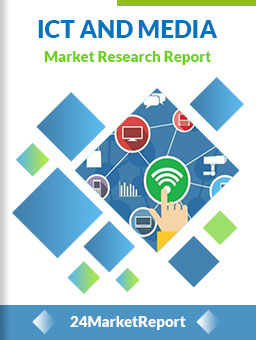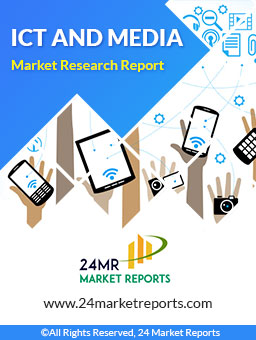
Download FREE Report Sample
Download Free sampleMARKET INSIGHTS
Global Enterprise Gamification Software market was valued at USD 605 million in 2024. The market is projected to grow from USD 672 million in 2025 to USD 1,096 million by 2032, exhibiting a CAGR of 9.1% during the forecast period.
Enterprise Gamification Software is a specialized business solution designed to integrate game-like mechanics into organizational processes. These systems employ elements such as points systems, achievement badges, leaderboard rankings, and real-time performance tracking to enhance employee engagement and customer interactions. The technology is increasingly being deployed across multiple business functions including training programs, sales incentive systems, customer loyalty initiatives, and productivity enhancement tools.
The market growth is driven by several key factors: rising adoption of digital transformation strategies across enterprises, increased focus on employee engagement solutions, and growing recognition of gamification's impact on learning outcomes. North America currently dominates the market with 42% revenue share (2024), followed by Europe at 28%, according to recent industry analysis. Major players like Bunchball (acquired by BI WORLDWIDE in 2021) and Badgeville continue to expand their product offerings, with recent platform updates focusing on AI-driven personalization and mobile-first experiences.
Increased Adoption of Digital Transformation Strategies to Fuel Market Growth
The enterprise gamification software market is experiencing strong growth due to increasing digital transformation initiatives across industries. Businesses are recognizing that gamification delivers measurable improvements in employee engagement and productivity - with some organizations reporting 40-60% increases in performance metrics after implementation. The technology has become particularly valuable in remote work environments, where maintaining team motivation and collaboration presents new challenges. Leading companies are investing heavily in digital workplace solutions; gamification platforms naturally align with these strategic priorities by integrating seamlessly with existing HR and CRM systems.
Demand for Enhanced Customer Engagement Solutions Driving Adoption
To know more about market statistics, Download a FREE Sample copy
Customer engagement has emerged as a critical differentiator in competitive markets, with gamification proving to be an effective tool for building brand loyalty. Research indicates that gamified experiences can improve customer retention rates by up to 30% while significantly increasing user interaction with digital platforms. Retailers are leveraging these solutions through rewards programs, while financial institutions apply gamification techniques to improve financial literacy and product adoption. The convergence of mobile technology with gamification capabilities has created new opportunities for real-time, personalized customer engagement across multiple touchpoints.
➤ For example, a major telecommunications company reported a 22% increase in customer app engagement after implementing gamified rewards for completing tutorials and using service features.
The growing recognition of gamification as a strategic business tool rather than just an engagement gimmick is accelerating market expansion. Industry leaders are now developing sophisticated analytics capabilities within gamification platforms, allowing for data-driven optimization of engagement strategies and measurable ROI.
Implementation Challenges and Change Management Hurdles Limit Adoption
Despite strong growth potential, the enterprise gamification market faces significant adoption barriers. Many organizations struggle with integrating gamification solutions into complex, legacy IT environments. The customization required to align gamification mechanics with specific business processes often leads to implementation timelines exceeding 6-12 months for large enterprises. Additionally, employee resistance to new systems remains a persistent challenge, with some workforces perceiving gamification as infantilizing or unnecessarily competitive.
Data Privacy Concerns Create Regulatory Complexity
As gamification platforms collect extensive user behavior data, organizations must navigate increasingly strict data protection regulations. Compliance with GDPR, CCPA, and other privacy frameworks requires significant investment in security features and governance processes. Some industries, particularly healthcare and financial services, face additional regulatory scrutiny regarding how gamification data can be collected and utilized. These compliance requirements not only increase implementation costs but may also limit the functionality of gamification solutions in highly regulated sectors.
AI-Powered Personalization Creates New Growth Frontiers
The integration of artificial intelligence with gamification platforms presents transformative opportunities for the market. Modern systems can now analyze user behavior in real-time to dynamically adjust challenges, rewards, and difficulty levels - creating highly personalized experiences. Early adopters report 2-3x improvement in engagement metrics compared to static gamification approaches. This technological evolution is enabling applications in previously untapped areas like adaptive learning systems and predictive performance management.
Emerging Markets Offer Significant Expansion Potential
While North America and Europe currently dominate market share, rapid digital transformation in Asia-Pacific and Latin American markets creates substantial growth opportunities. Countries like India, Brazil, and Indonesia are seeing surging demand for digital engagement solutions, with the SaaS-based delivery model making gamification platforms increasingly accessible. Localization efforts focusing on cultural preferences and mobile-first implementations are helping vendors capture these emerging opportunities.
Sustainability of Engagement Poses Long-Term Implementation Challenges
Many organizations struggle to maintain high engagement levels with gamification systems over time. The novelty effect often leads to strong initial participation that declines by 30-50% within 6 months if not properly maintained. Continuous content updates and reward system refreshes require dedicated resources that some businesses underestimate during implementation. This challenge has led to increased demand for managed services and content creation tools within gamification platforms.
Integration with Legacy Systems
The technical complexity of connecting gamification platforms with aging enterprise systems remains a significant barrier. Many organizations operate on outdated HRIS, CRM, and ERP platforms that lack modern APIs, requiring custom integration solutions that can dramatically increase costs and implementation timelines.
Measuring True Business Impact
While engagement metrics are easily tracked, demonstrating concrete ROI in terms of productivity gains or revenue impact presents an ongoing challenge. Organizations increasingly demand robust analytics capabilities that can correlate gamification activities with key performance indicators across business functions.
Cloud-Based Solutions Dominate Due to Scalability and Low Infrastructure Costs
The market is segmented based on type into:
Cloud-Based
Subtypes: SaaS platforms, enterprise-grade cloud solutions
Web-Based
On-Premises
Subtypes: Custom installations, proprietary systems
Hybrid
Employee Engagement Leads Adoption Due to Corporate Focus on Productivity Enhancement
The market is segmented based on application into:
Employee Engagement & Training
Customer Loyalty Programs
Sales Performance Management
Learning & Development
Others
Large Enterprises Lead Implementation Through Dedicated IT Infrastructure
The market is segmented based on deployment size into:
SMEs
Large Enterprises
Market Leaders Leverage Gamification Innovation for Competitive Edge
The enterprise gamification software market features a dynamic competitive environment with both established players and emerging innovators vying for market share. Bunchball (acquired by BI Worldwide) currently dominates the space, controlling approximately 22% of the global market in 2024. Their Nitro platform remains the gold standard for enterprise gamification, particularly in sales performance and customer engagement applications.
Badgeville (now part of CallidusCloud) and Mambo.IO have secured strong positions in the European and Asian markets respectively, together accounting for nearly 30% of regional implementations. Their success stems from localized solutions that address specific cultural preferences in workforce motivation and customer loyalty programs.
Several factors are reshaping the competitive landscape, including:
Meanwhile, Playlyfe and Hoopla are making significant inroads with their API-first approaches, enabling seamless integration with enterprise workflows. These companies are particularly successful with technology firms and financial institutions that require customized gamification layers on top of complex business processes.
The market has witnessed notable consolidation activity, with three major acquisitions occurring in 2023 alone. Most significantly, Salesforce's acquisition of Atta has positioned the CRM leader as a major player in gamified sales enablement tools. This trend is expected to continue as enterprise software providers seek to embed gamification capabilities directly into their platforms.
Funding activity remains robust, with venture capital investments in gamification startups reaching $287 million in 2023. Early-stage companies like Bizbee and Bravon are attracting attention with innovative approaches to team collaboration gamification, particularly in distributed work environments.
Bunchball (BI Worldwide) (U.S.)
Badgeville (CallidusCloud) (U.S.)
Mambo.IO (Singapore)
Playlyfe (India)
Hoopla (U.S.)
All Digital Rewards (ADR) (U.S.)
Recognize (U.S.)
Bizbee (Germany)
Bravon (U.K.)
Atta (Salesforce) (U.S.)
Ambition (U.S.)
BankersLab (U.S.)
BigDoor (Japan)
CustomerAdvocacy (Canada)
The enterprise gamification software market is undergoing a transformative phase with the increasing integration of artificial intelligence (AI) and machine learning capabilities. These technologies are enabling dynamic personalization of gamified experiences, with algorithms that adapt challenges and rewards based on individual user performance patterns. Recent data indicates that AI-powered gamification platforms achieve 35-40% higher engagement rates compared to traditional systems. The most progressive solutions now feature predictive analytics that anticipate employee skill gaps and automatically adjust training modules accordingly. Companies implementing these intelligent systems report 28% faster onboarding times and 22% improvement in knowledge retention metrics.
Hyper-Personalization of Employee Experiences
Modern workforce dynamics demand tailored engagement strategies, pushing gamification providers to develop hyper-personalized solutions. Platforms now incorporate behavioral science principles to customize motivational mechanics - from variable reward schedules to personalized milestone celebrations. Leading solutions track over 150 individual performance indicators to create unique engagement profiles. Retail organizations using these personalized approaches have seen customer service satisfaction scores increase by an average of 18 points. Furthermore, 73% of HR managers reported higher team cohesion when using personalized gamification approaches in remote work environments.
While gamification initially gained traction in sales and training applications, its adoption is rapidly expanding across unexpected verticals. Healthcare institutions are implementing gamified patient engagement platforms that improve treatment adherence by 65%. Financial services firms utilize simulation-based training games that reduce compliance errors by 52%. Even manufacturing sectors report 40% reductions in safety incidents after introducing gamified reporting systems. This diversification is creating new revenue streams for solution providers, with the healthcare gamification segment growing at 14.2% annually. The technology's versatility in addressing sector-specific challenges continues to unlock previously untapped market potential.
North America
The North American enterprise gamification software market is the most mature globally, driven by early adoption among Fortune 500 companies and tech-savvy organizations. The U.S. dominates with over 60% regional market share, fueled by widespread digital transformation initiatives across banking, healthcare, and retail sectors. Adoption is propelled by the need to improve employee engagement (Gallup reports only 32% of U.S. workers feel engaged) and customer retention strategies. Canada shows growing demand, particularly in financial services adapting to hybrid work models. While cloud-based solutions lead penetration, data privacy regulations like CCPA influence platform selection criteria.
Europe
Europe's gamification market balances innovation with strict GDPR compliance requirements, creating demand for localized solutions with robust data governance. The DACH region (Germany, Austria, Switzerland) shows strongest growth, particularly in manufacturing gamification for skilled worker training. Compared to North America's sales-focused deployments, European implementations emphasize continuous learning and sustainability engagement - with Scandinavian countries pioneering eco-gamification in corporate sustainability programs. The UK maintains steady adoption in fintech and insurance sectors, though Brexit-related economic uncertainties have slowed some enterprise investments.
Asia-Pacific
As the fastest growing region (projected 11.8% CAGR), APAC presents both opportunity and complexity. China leads in adoption volumes through government-linked digital workplace initiatives, while India's thriving startup ecosystem drives SMB demand. Japan and South Korea demonstrate sophisticated use cases, blending gamification with existing kaizen and nudge theory practices. Southeast Asia shows uneven adoption - Singapore and Malaysia embrace gamification for multinational workforces, whereas price sensitivity in emerging economies favors basic feature sets. Cultural adaptation remains critical, with Western leaderboard models often requiring modification for collective achievement orientations.
South America
Brazil accounts for nearly half of regional market activity, with gamification gaining traction in banking customer loyalty programs and retail employee training. Economic volatility pushes organizations toward cost-effective web-based solutions rather than comprehensive platforms. Argentina and Chile show niche adoption in education technology and telecom sectors. While interest grows, implementation challenges include limited digital infrastructure outside major cities and a preference for interpersonal management styles over automated engagement systems. Providers must balance localization needs with budget constraints to expand market presence.
Middle East & Africa
The region demonstrates two distinct adoption patterns: Gulf states (UAE, Saudi Arabia) invest heavily in gamified government services and luxury retail customer experiences, while African nations primarily utilize basic mobile gamification for agricultural extension programs. Dubai's smart city initiatives incorporate gamification across public and private sectors, setting regional benchmarks. In Africa, South Africa leads corporate adoption, though infrastructure limitations and power reliability issues constrain cloud solution uptake. The market shows long-term potential as digital transformation accelerates, particularly for Arabic-language platforms combining gamification with Islamic finance principles.
This market research report offers a holistic overview of global and regional markets for the forecast period 2025–2032. It presents accurate and actionable insights based on a blend of primary and secondary research.
✅ Market Overview
Global and regional market size (historical & forecast)
Growth trends and value/volume projections
✅ Segmentation Analysis
By product type or category
By application or usage area
By end-user industry
By distribution channel (if applicable)
✅ Regional Insights
North America, Europe, Asia-Pacific, Latin America, Middle East & Africa
Country-level data for key markets
✅ Competitive Landscape
Company profiles and market share analysis
Key strategies: M&A, partnerships, expansions
Product portfolio and pricing strategies
✅ Technology & Innovation
Emerging technologies and R&D trends
Automation, digitalization, sustainability initiatives
Impact of AI, IoT, or other disruptors (where applicable)
✅ Market Dynamics
Key drivers supporting market growth
Restraints and potential risk factors
Supply chain trends and challenges
✅ Opportunities & Recommendations
High-growth segments
Investment hotspots
Strategic suggestions for stakeholders
✅ Stakeholder Insights
Target audience includes manufacturers, suppliers, distributors, investors, regulators, and policymakers
-> Key players include Playlyfe, Apparound, All Digital Rewards (ADR), Recognize, XUCore, Bizbee, Bravon, Tremendous, Atta, Ambition, Badgeville, BankersLab, BigDoor, Bunchball, CustomerAdvocacy, Hoopla, Belly, and Mambo.IO, among others.
-> Key growth drivers include increasing demand for employee engagement solutions, rising adoption in corporate training programs, and the need for enhanced customer loyalty strategies.
-> North America holds the largest market share, while Asia-Pacific is expected to witness the highest growth rate during the forecast period.
-> Emerging trends include integration of AI for personalized gamification experiences, mobile-first solutions, and the adoption of VR/AR technologies in training applications.

Speak to our Custom Research Team and get the Custom Research in a budget
Custom ResearchFrequently Asked Questions ?
A license granted to one user. Rules or conditions might be applied for e.g. the use of electric files (PDFs) or printings, depending on product.
A license granted to multiple users.
A license granted to a single business site/establishment.
A license granted to all employees within organisation access to the product.
Upto Working 24 to 48 hrs
Upto 72 hrs max - Weekends and Public Holidays
Online Payments with PayPal and CCavenue
Wire Transfer/Bank Transfer
Hard Copy




 Industry Market Size
Industry Market Size SWOT Analysis
SWOT Analysis Industry Major Players
Industry Major Players Revenue Forecasts
Revenue Forecasts Historical and Forecast Growth
Historical and Forecast Growth Profitability Analysis
Profitability Analysis
























